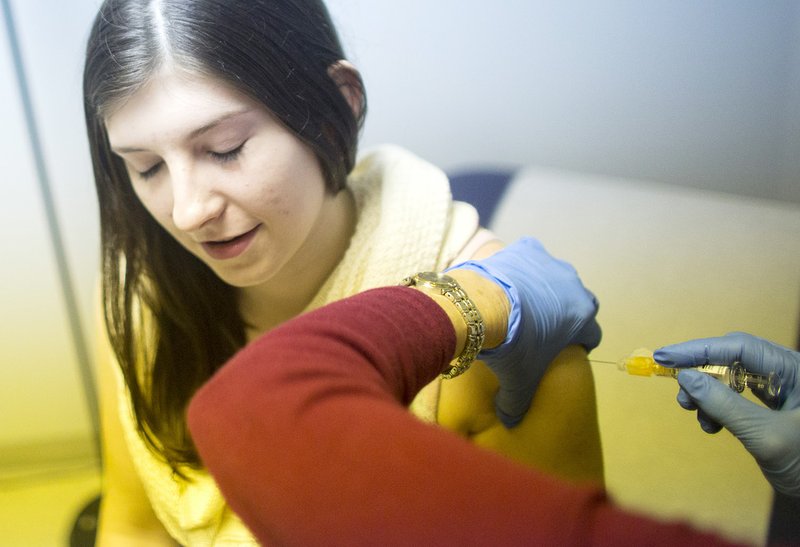With cold and flu season in full force, the staffs at schools in the Three Rivers Edition coverage area are doing everything in their power to prevent students from coming down with the feared flu virus this year.
Cathy Flanigan, director of health communications and marketing for the Arkansas Department of Health, said that as of Friday, there had been 22 confirmed deaths caused by the flu, and the most frequently seen influenza strain has been H1N1.
The best way to prevent the flu is to get the flu vaccine, according to the Arkansas Department of Health’s website.
Many schools in the state held flu-vaccine clinics before the new year to prepare for this year’s flu season.
Dovie Baxter, the school nurse at Sidney Deener Elementary School in Searcy, said her school conducted a clinic in November.
“We had a good response,” she said.
Though the vaccine has been effective, Baxter said, she is still seeing children miss school as a result of the flu virus.
“When the kids get the flu, they’re staying out for about a week,” she said. “We’ve had several children with high fevers around 102 degrees, body aches and coughing.”
Flu viruses are spread by droplets made when people with the flu cough, sneeze or even talk. People can get the flu by touching a surface or object with the virus on it and then touching their mouth, eyes or nose, according to ADH’s website.
Summer Barnum, the school nurse at Tolleson Elementary School in Jacksonville, said the main method of preventing the spread of the flu virus at school is proper handwashing.
“That’s the best way to prevent the virus from spreading,” she said. “I even do a handwashing class for the younger kids.”
Baxter said she reminds the children in her school to always cover their mouths when they sneeze or cough, as another preventative method.
“If they do that, they can keep from exposing everyone else to the flu,” she said.
Faith Stiles, the school nurse for Beebe Junior High and Beebe High schools, said that if children are diagnosed with the flu, they need to stay home until they have been fever-free for at least 24 hours without the assistance of medication.
“That way, we make sure they’re not contagious anymore,” she said.
Baxter said students are sent home with a note explaining the 24-hour fever-free rule.
“We want to remind the parents of that,” she said.
According to the Arkansas Department of Health’s website, most healthy adults may be able to infect others beginning a whole day before symptoms develop, and anywhere from five to seven days after becoming sick; but young children or people with weakened immune systems might infect others for an even longer period.
Most of the nurses in the Three Rivers Edition coverage area’s schools said the week of Jan. 13-17 has produced the largest number of children with the flu.
“We’ve had quite a few cases this week, and it’s the first week I’m seeing confirmed cases from the doctor’s offices,” Stiles said.
The Arkansas Department of Health’s website states that the flu is unpredictable, and its severity can vary from one season to the next.
“There’s tons of flu all over the country,” she said. “We’re focusing on giving more flu shots and trying to continue giving flu shots.”
Flanigan said it’s not too late to get a flu vaccine.
“The flu season hasn’t started slowing down yet; it’s going to continue through March,” she said. “Even though the vaccine may take 10 to 14 days to be effective, it could still keep you from getting the flu.”
Flu vaccines are available at local health departments and at some pharmacies.
“The Health Department still has plenty of the vaccine, but if you’re going to a pharmacy, make sure they’ve got the vaccine before you go,” Flanigan said.
Staff writer Lisa Burnett can be reached at (501) 244-4307 or lburnett@arkansasonline.com.
